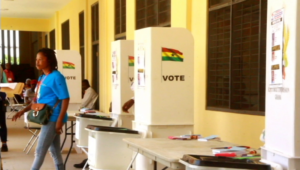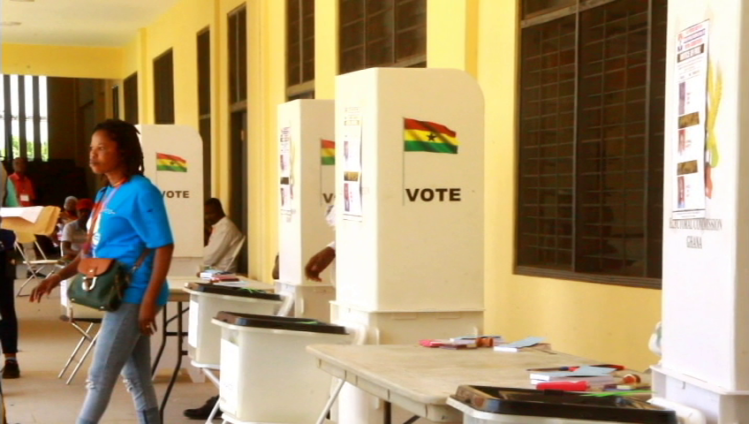
Accra, Ghana//-Ghana’s democratic journey, celebrated for its peaceful elections and robust institutions, faces new challenges amid recent revelations about electoral integrity.
A groundbreaking survey conducted by the Ghana Institute of Management and Public Administration (GIMPA) in collaboration with the Konrad Adenauer Stiftung (KAS) has uncovered troubling insights: approximately 11% of voters confessed to accepting money in exchange for votes during the 2024 general elections. This revelation raises serious concerns about legal violations and the stability of Ghana’s constitutional democracy.
The report, presented by Dr. Joseph A. Darmoe, Director of Programmes at KAS and Senior Lecturer at GIMPA, highlights renewed concerns regarding vote-buying and its detrimental effects on Ghana’s democratic integrity.
Key findings
According to key findings from the survey, the majority of respondents reported that their voting decisions were influenced by party affiliation (26.6%), policies or campaign messages (17.4%), and candidate personality (16.2%).
Additionally, over 10% of voters admitted that financial considerations played a role in their choice. The survey also explored other underlying reasons for voting, with about 12.3% indicating that development projects influenced their decision, and 6.4% citing ethnicity as a factor. Family or peer influence (4.6%), religious affiliation ( and tradition, 1.3%) were also identified as reasons for voting.
“This shows that inducement still plays a role in shaping voter behaviour in Ghana,” said Dr. Darmoe.
The GIMPA-KAS survey, which sampled thousands of voters across diverse constituencies, indicates that vote-buying remains a significant obstacle to genuine democratic choice.
Notably, the survey identified several constituencies where the incidence of electoral corruption was particularly high: Afigya Kwabre North Constituency in the Ashanti Region, Ablekuma South Constituency in the Greater Accra Region, Tolon Constituency in the Northern Region, and Nkwanta South Constituency in the Volta Region.
Legal Framework Governing Electoral Conduct in Ghana
Ghana’s electoral laws explicitly prohibit vote-buying and any form of electoral corruption. However, the widespread acceptance of money in voting not only breaches these legal statutes but also undermines the fundamental principles enshrined in Ghana’s 1992 Constitution.
Key Legal Provisions
Representation of the People Act, 1992 (Act 284): Sections 112 and 113 criminalise voter inducement and bribery, prescribing penalties such as fines and imprisonment. The Electoral Commission Regulations also mandate strict monitoring of campaign activities and prohibit monetary inducements on polling day.
The Criminal Offences Act, 1960 (Act 29) further criminalises corruption and unlawful solicitation, extending to electoral misconduct. Despite these statutes, enforcement remains challenging due to limited resources, intimidation, and societal tolerance for such practices.
The revelations from the GIMPA-KAS survey serve as a wake-up call for Ghana’s democratic institutions. Continued vigilance, legal reforms, and community engagement are essential to safeguard the foundations from the erosion caused by electoral corruption.


